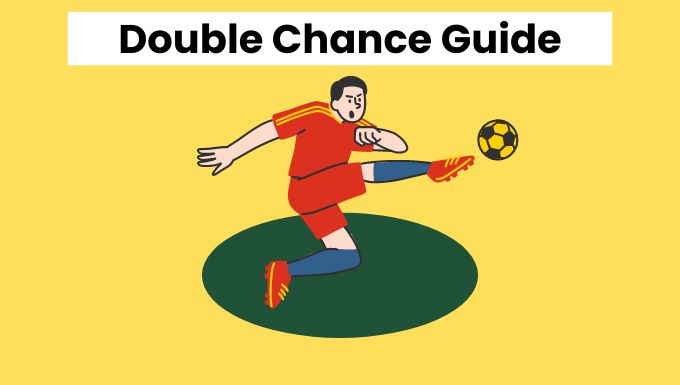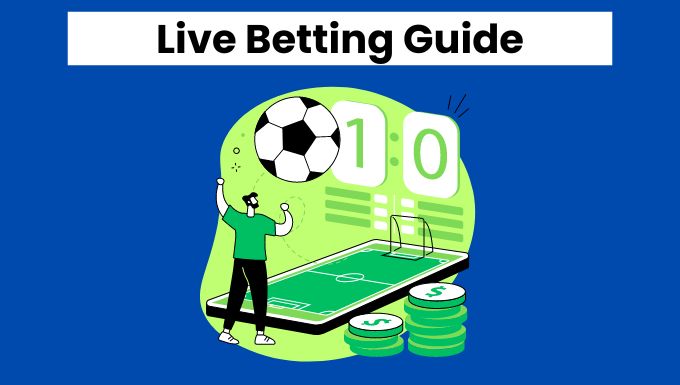If you’re serious about betting, bankroll management is the foundation of everything. It doesn’t matter how good your picks are, if you don’t manage your money properly, you’ll eventually go broke. I’ve seen plenty of bettors crash and burn, because they dive in without a plan and end up chasing losses.
Bankroll management is all about staying in control. It’s not about getting rich quick or hitting a crazy multibet (though that’s always fun when it happens). It’s about making smart decisions so you can keep betting, keep having fun, and give yourself a real shot at coming out ahead. The first rule? Only bet what you can afford to lose. This isn’t rent money or grocery money, it’s your betting fund, and it should never mess with your life outside of this.

Next, you’ve got to decide how much to bet on each game. This is where “units” come in. A unit is just a small percentage of your bankroll, usually 1-2%. By sticking to this, you protect yourself from those inevitable losing streaks and avoid the temptation to go all-in on a “sure thing” (spoiler: there’s no such thing).
What A Bankroll Is And Why It Matters
Bankroll is the money you’ve set aside specifically for betting. That’s it. It’s not your savings, it’s not your emergency fund, and it’s definitely not the cash you need for bills or groceries. It’s your betting fund, plain and simple. Think of it like your ammunition, you’ve got to use it wisely if you want to stay in the game.
Why does it matter? Because without a bankroll, you’re just gambling blindly. I’ve seen it happen too many times—someone gets excited, throws way too much money on a game, loses, and then starts chasing losses with even bigger bets. Before they know it, they’re out of cash and out of luck. That’s not betting; that’s just throwing money away. Your bankroll is what keeps you grounded. It’s your way of saying, “This is what I’m comfortable risking, and I’m not going past it.”
Having a bankroll also helps you make smarter decisions. When you know exactly how much you’re working with, you can plan your bets better. You’re not just randomly throwing money at games; you’re thinking about how much to risk, when to take a shot, and when to hold back. It’s about discipline, and discipline is what separates the casual bettors from the ones who actually come out ahead.
Setting A Budget You Can Afford To Loose
The first rule of betting is simple: never risk money you can’t afford to lose. I’ve seen people bet with rent money, borrow from friends, or chase losses with money they didn’t have and it never ends well. Betting should be something you enjoy, not something that causes stress or financial problems.
When setting a budget, think of it as entertainment money. Just like you wouldn’t spend more than you can afford on a night out or a vacation, you shouldn’t dump money into betting that you actually need for bills, groceries, or savings. Your bankroll should be an amount that, if lost completely, wouldn’t affect your life in any serious way.
One mistake I made early on was depositing more than I should have, thinking I could win it back quickly. That mindset is dangerous. Instead of looking at your bankroll as a way to “get rich”, see it as a tool to place smart bets and last long enough to make good decisions.
A good approach is to set a weekly or monthly betting budget and stick to it, no matter what happens. If you lose your bankroll, take a break until you can reload responsibly. If you win, don’t immediately increase your stakes like you’re playing with “free money”.Treat your bankroll with respect, and it will last a lot longer.
Bet Unit Sizing And Staying Consistent
When it comes to unit sizing – this is where a lot of people go wrong. A “unit” is just a percentage of your bankroll that you bet on each game. For most bettors, 1-2% of your total bankroll per bet is a good rule of thumb. Why? Because it keeps you from risking too much on any single game and helps you survive those inevitable losing streaks. Trust me, even the best bettors go through rough patches, and if you’re betting too much per game, you’ll burn through your bankroll fast.
Here’s the key: stay consistent. Pick a unit size and stick to it, no matter what. Don’t get greedy after a few wins and start betting 5% or 10% of your bankroll on a “lock.” There’s no such thing as a sure thing in betting, and upping your bets like that is a quick way to blow everything you’ve built. On the flip side, don’t panic and start betting smaller after a few losses. That’s just chasing your tail. Consistency is what keeps you steady through the ups and downs.
I’ve seen too many people get emotional and start changing their unit sizes based on how they’re feeling. Big mistake. Stick to your plan, even when it’s tough. If your bankroll grows, you can adjust your unit size accordingly, but never go overboard. The goal is to protect your bankroll and give yourself a chance to win over the long run.
Tracking Your Bets And Staying Disciplined
If you are not tracking your bets, you’re basically gambling blind. I used to think I could just remember everything in my head -my wins, my losses, what worked, what didn’t.Turns out, that’s a terrible way to manage your money. Without a clear record, it’s easy to trick yourself into thinking you’re doing better than you actually are.
Keeping track of your bets is simple but makes a huge difference. Write down every bet, how much you staked, the odds, the outcome, and why you placed it. Over time, you’ll start seeing patterns. Maybe you do well on underdogs but lose money betting heavy favorites. Maybe certain leagues or bet types aren’t profitable for you. The only way to know for sure is to track everything.
Discipline goes hand in hand with tracking. If you don’t stick to a plan, your bankroll won’t last. That means setting a staking strategy and not deviating from it just because you feel like you’re due for a win. It means resisting the urge to chase losses with bigger bets.
Knowing When To Adjust Your Bankroll
Knowing when to adjust your bankroll is one of those skills that separates the smart bettors from the ones who crash and burn. Here’s the deal: your bankroll isn’t static, it’s going to grow and shrink over time, and how you handle those changes matters. Let’s break it down.
First, if your bankroll grows significantly, it’s okay to adjust your unit size. Let’s say you started with a KSH1,000 bankroll and were betting KSH100 (1%) per game. If your bankroll grows to KSH2,000, bumping your unit size to KSH200 makes sense. You’re still betting the same percentage, but now you’re playing with house money, which feels great. Just don’t get carried away and start betting bigger just because you’re on a hot streak. Stay disciplined.
On the flip side, if your bankroll takes a hit, you need to adjust too. If that KSH1,000 drops to KSH700, your KSH100bets are now closer to 1.5% of your bankroll. That might not sound like a big deal, but it adds up. Lower your unit size to KSH70 to keep things in check. This isn’t admitting defeat—it’s about protecting what you have left and giving yourself a chance to recover.
Bankroll management might not be the most exciting part of betting, but it’s easily the most important. It’s what keeps you in the game, protects you from yourself, and gives you a real shot at coming out ahead. Without it, you’re just gambling blindly, and trust me, that’s a quick way to end up frustrated and broke.
The basics are simple: set a budget you can afford to lose, bet small percentages of your bankroll, track your bets, and adjust as needed. It’s not about hitting a huge win overnight—it’s about staying disciplined, staying consistent, and giving yourself a chance to succeed over time. Betting should be fun, not stressful, and good bankroll management is what keeps it that way.So, take it seriously. Treat your bankroll with respect, stick to your plan, and don’t let emotions drive your decisions. Whether you’re up or down, the goal is to stay in control and keep enjoying the ride.


